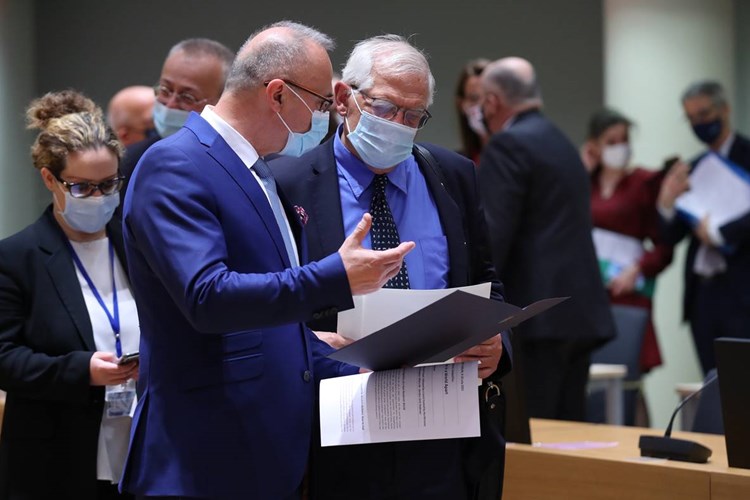


The concept of three constituent peoples in Bosnia and Herzegovina is not contrary to the Sejdić-Finci ruling and it is key to the functioning, stability and European journey of that country, Croatia's foreign minister said in Brussels ahead of a discussion of EU ministers on the Western Balkans.
"The situation in Bosnia and Herzegovina is the biggest challenge in the region and I would like to emphasise the importance of the concept of three constituent peoples, which is key to the functioning, stability and European journey of that country. Contrary to what appeared in the media recently, that concept is not incompatible with the Sejdić-Finci ruling," Foreign and European Affairs Minister Gordan Grlić Radman said ahead of the meeting of EU foreign ministers focusing on the Western Balkans as one of the three main topics.
"Elimination of any form of discrimination in the election process is crucial, and that can be achieved by amending the election law," added Grlić Radman.
Back in late 2009, the European Court of Human Rights ruled that the rules to elect members of BiH's presidency were discriminatory because citizens who do not belong to any of the three constituent peoples cannot be elected.
Another problem emerged in the election of members to the presidency in the Federation BiH entity, where the Croat and Bosniak members of the presidency are elected. The more numerous Bosniaks have on three occasions voted for the Croat member of the presidency who enjoys very weak support in the Croat electorate.
Grlić Radman said that the EU had to step up its engagement in the Western Balkans and have a strategic approach. He underlined that countries in the region have to work on democratic transformation, human rights and the rule of law while the EU has to keep its promises.
"That means opening accession negotiations with North Macedonia and Albania, visa liberalisation for Kosovo, Montenegro needs to remain dedicated to its European path, and Serbia has to focus on reforms and overcome the legacy of war," said Grlić Radman.
"We have to get involved and invest in the stability and security of the Western Balkans because that way we invest in the stability and security of Europe," he concluded.
The EU External Action Service has prepared a non-paper for today's meeting regarding enhanced EU engagement in the Western Balkans.
The working document notes that countries in the Western Balkans have a clear objective to become members of the EU and that they do not want alternative arrangements such as enhanced economic, trade or financial cooperation.
The document says that this year offers good prospects for those countries to make concrete and significant progress on their path towards the EU. The countries are asked to work on strengthening good neighbourly relations and to invest effort to find final and inclusive solutions to bilateral disputes and the legacy of the past and to implement them.
It also says that the new US administration is prepared for joint action with the EU in the Western Balkans.
The document underlines that it is essential that Bosnia and Herzegovina make progress in fulfilling 14 key priorities defined by the European Commission.
Serbia and Montenegro are required to step up reforms, particularly regarding the rule of law and governance and to consolidate their geopolitical orientation.
Serbia and Kosovo are expected to strengthen their efforts in achieving a comprehensive binding agreement on the normalisation of relations.
Text: Hina